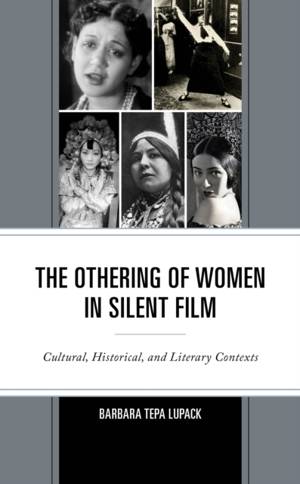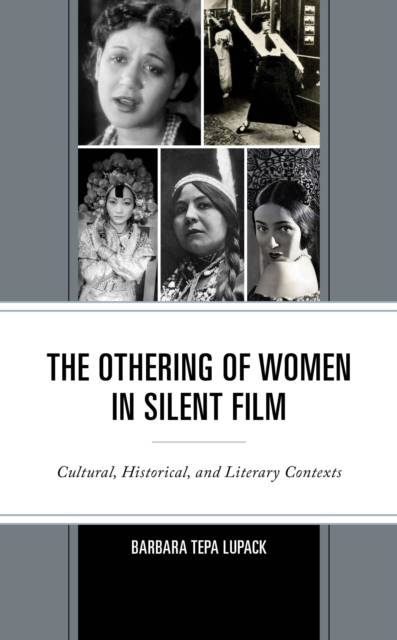
- Afhalen na 1 uur in een winkel met voorraad
- Gratis thuislevering in België vanaf € 30
- Ruim aanbod met 7 miljoen producten
- Afhalen na 1 uur in een winkel met voorraad
- Gratis thuislevering in België vanaf € 30
- Ruim aanbod met 7 miljoen producten
Zoeken
The Othering of Women in Silent Film
Cultural, Historical, and Literary Contexts
Barbara Tepa Lupack
Hardcover | Engels
€ 220,45
+ 440 punten
Omschrijving
In The Othering of Women in Silent Film: Cultural, Historical, and Literary Contexts, Barbara Tepa Lupackexplores the rampant racial and gender stereotyping depicted in early cinema, demonstrating how those stereotypes helped shape American attitudes and practices. Using social, cultural, literary, and cinema history as a focus, this book offers insights into issues of Othering, including discrimination, exclusion, and sexism, that are as timely today as they were a century ago. Lupack not only examines the ways that dominant cinema of the era imprinted indelible and pejorative images of women--including African Americans, Native Americans, Asians, Hispanics, and New Women/Suffragists--but also reveals the ways in which a number of pioneering early filmmakers and performers attempted to counter those depictions by challenging the imagery, interrogating the stereotypes, and re-politicizing the familiar narratives. Scholars of film, gender, history, and race studies will find this book of particular interest.
Specificaties
Betrokkenen
- Auteur(s):
- Uitgeverij:
Inhoud
- Aantal bladzijden:
- 344
- Taal:
- Engels
Eigenschappen
- Productcode (EAN):
- 9781666913965
- Verschijningsdatum:
- 6/11/2023
- Uitvoering:
- Hardcover
- Formaat:
- Genaaid
- Afmetingen:
- 152 mm x 229 mm
- Gewicht:
- 675 g

Alleen bij Standaard Boekhandel
+ 440 punten op je klantenkaart van Standaard Boekhandel
Beoordelingen
We publiceren alleen reviews die voldoen aan de voorwaarden voor reviews. Bekijk onze voorwaarden voor reviews.








